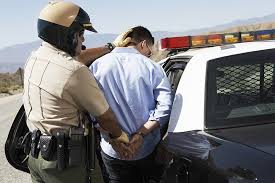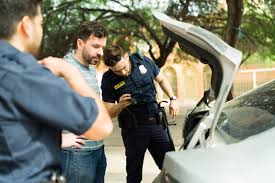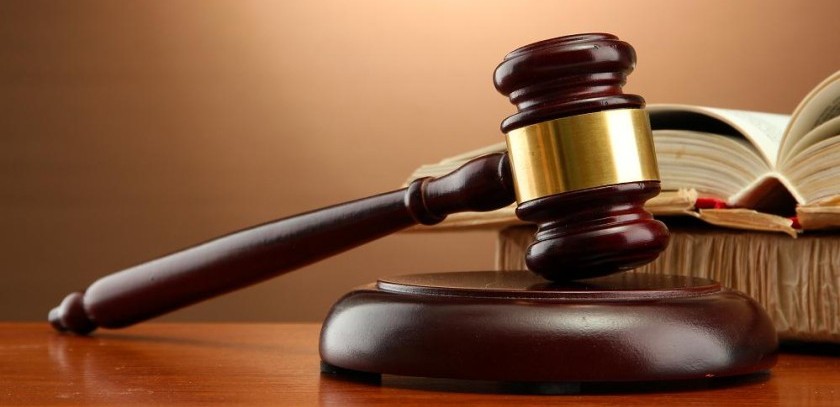When you’re pulled over and subsequently arrested for a DUI, it’s not just your blood alcohol content that’s under scrutiny; your vehicle can also become a focal point for a police search. Understanding your legal rights in these situations is crucial, as it can significantly impact the outcome of your case and your overall defense strategy. This blog will explore the nuances of vehicle searches after a DUI arrest in California, outlining what law enforcement can and cannot do, and providing you advice on how to legally protect yourself.
Understanding California DUI Arrest

Definition of DUI
In California, driving under the influence (DUI) refers to operating a vehicle while impaired by alcohol, drugs, or a combination of both. (CVC 23152) The state sets the blood alcohol concentration (BAC) limit at 0.08% for drivers aged 21 and over. For commercial drivers, the limit is even lower at 0.04%, and for those under the age of 21, any measurable BAC can lead to a DUI charge. Impairment due to drugs, whether prescription, over-the-counter, or illegal substances, can also result in a DUI arrest if they negatively affect your motor skills, reaction time, or judgment.
Process of DUI Arrest in California
The DUI arrest process in California typically begins with a traffic stop, either due to a driving violation or at a DUI checkpoint. If an officer suspects alcohol or drug impairment, they will conduct field sobriety tests and may use a breathalyzer test to measure BAC. Refusal to perform these tests often leads to enhanced penalties under California’s implied consent laws. An arrest is made if the officer has probable cause to believe the driver is impaired. Following arrest, the driver is usually taken into police custody for further testing and booked. Charges are then formally processed, and the case proceeds according to judicial protocols.
Vehicle Search After a California DUI Arrest

Legal Basis for Vehicle Searches
Following a DUI arrest in Orange County, the legality of a vehicle search by law enforcement hinges on various circumstances. Generally, police are permitted to perform a search without a warrant for several reasons:
– Incident to Arrest: Law enforcement is allowed to search a vehicle if it is related to the arrest, such as looking for open alcohol containers or evidence of drug use.
– Consent: If the driver consents to a search, the police can conduct it without a warrant.
– Plain View: Officers can seize evidence without a warrant if it is clearly visible.
– Vehicle Impoundment: Upon impounding a vehicle, police are permitted to conduct an inventory search.
Rights Regarding Vehicle Search After a DUI Arrest
Understanding your rights during a vehicle search can provide vital protections. Firstly, you are not required to consent to a vehicle search if there’s no probable cause or a valid warrant. Expressing that you do not consent to a search can impact potential legal proceedings. It’s important to be aware that any evidence found in an unauthorized search might be deemed inadmissible in court. However, if the vehicle is lawfully impounded, the police may perform an inventory search of the vehicle, which is not regarded as a search aimed at gathering evidence against you in a criminal trial, but rather to safeguard property.
Important Considerations for Individuals
When confronted with a DUI arrest and subsequent vehicle search, here are several important considerations:
– Remain Calm: Maintaining composure and cooperating without consent can help you legally later on.
– Avoid Self-Incrimination: Exercise your right to remain silent until you can speak with a Mission Viejo DUI lawyer.
– Seek Legal Representation: Speak to an Orange County DUI lawyer as soon as possible to discuss your case and understand your rights and options.
– Document Everything: After the incident, document all details as you remember them, including the officer’s behavior and any search performed, which can be valuable for your legal defense.
Understanding these aspects deeply will help protect your rights and navigate the complex process following a DUI arrest in California.
Consequences of Vehicle Search After a DUI Arrest
Potential Evidence against You
When law enforcement conducts a search of your vehicle following a DUI arrest in California, any illegal substances, open alcohol containers, firearms, or anything else that could be deemed illegal or suspicious may be found. These findings not only strengthen the DUI charge but can also lead to additional charges. For example, if unregistered firearms or drugs are found in your car, you could potentially face charges related to those items. Furthermore, objects that suggest irresponsible or reckless behavior, like drug paraphernalia, can severely impact the narrative of your case from a legal standpoint.
Impact on Your Legal Defense
The discovery of additional evidence during a vehicle search can complicate your legal defense significantly. Each piece of evidence discovered can be used to formulate a narrative that paints your actions in a more negative light. Such a perspective might influence judges and juries, potentially enhancing the severity of your sentencing or leading to multiple convictions. Moreover, if the search uncovers evidence erroneously linked to other criminal activities, defending a straightforward DUI case can become substantially more intricate and demanding.
Protecting Yourself Legally After a California DUI Arrest

Steps to Take If Your Vehicle is Searched
To protect your rights after a vehicle search following a DUI arrest, consider taking these steps:
– Request documentation: Always ask officers to provide a warrant or explain the legal grounds for the search. Even during stressful circumstances, remaining aware of the process can help in your defense.
– Remain silent: Do not comment on anything found during the search. Exercise your right to remain silent because anything you say can and will be used against you in court.
– Note the details: Pay attention to how the search is conducted. Unlawful search practices can be grounds for dismissing evidence during trials. Note whether the officers seemed to have a justifiable reason for the search and how they executed it.
– Contact a Mission Viejo DUI attorney immediately: One of the most critical steps post-search is to contact a Mission Viejo DUI defense lawyer. They can advise on the immediate steps to take and start formulating a defense strategy.
Seeking Legal Advice and Representation

Securing competent legal representation should be a priority following a DUI arrest and subsequent vehicle search in California. A seasoned Orange County DUI attorney can offer substantial assistance, including:
– Evaluating the legality of the vehicle search and the arrest itself.
– Challenging any illegally obtained evidence.
– Mitigating the potential charges and working towards a more favorable outcome.
– Representing and articulating your side of the story effectively in court.
An experienced Mission Viejo DUI attorney will understand the nuances of state laws and local jurisdiction, which can significantly influence the outcome of your case. Remember, expert legal advice is not just about defending against the charges but ensuring your rights are protected throughout the legal proceedings.
In conclusion, understanding your rights during and after a vehicle search can significantly impact the handling and outcome of your California DUI case. Awareness and swift action in seeking legal advice can make a definite difference in protecting these rights and shaping your defense.
Conclusion
Understanding your rights related to car searches following a DUI arrest in California is crucial for protecting your legal interests. Remember, you have rights that police must respect during and after an arrest. However, the complexities surrounding permissible search scopes mean it is wise to consult with an experienced Orange County DUI lawyer who can offer guidance and help safeguard your rights. Stay informed and prepared to navigate the legal challenges effectively should you ever find yourself in this situation.
